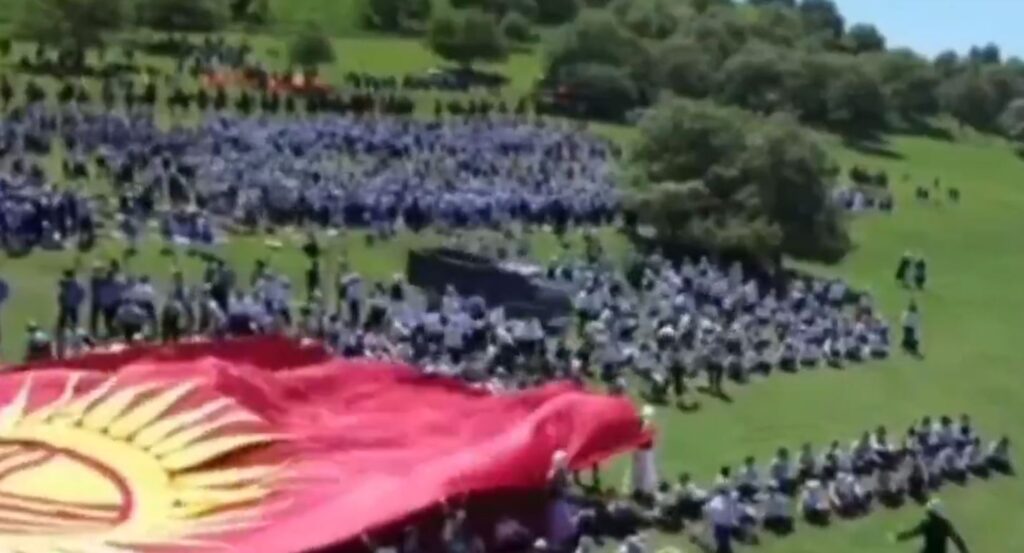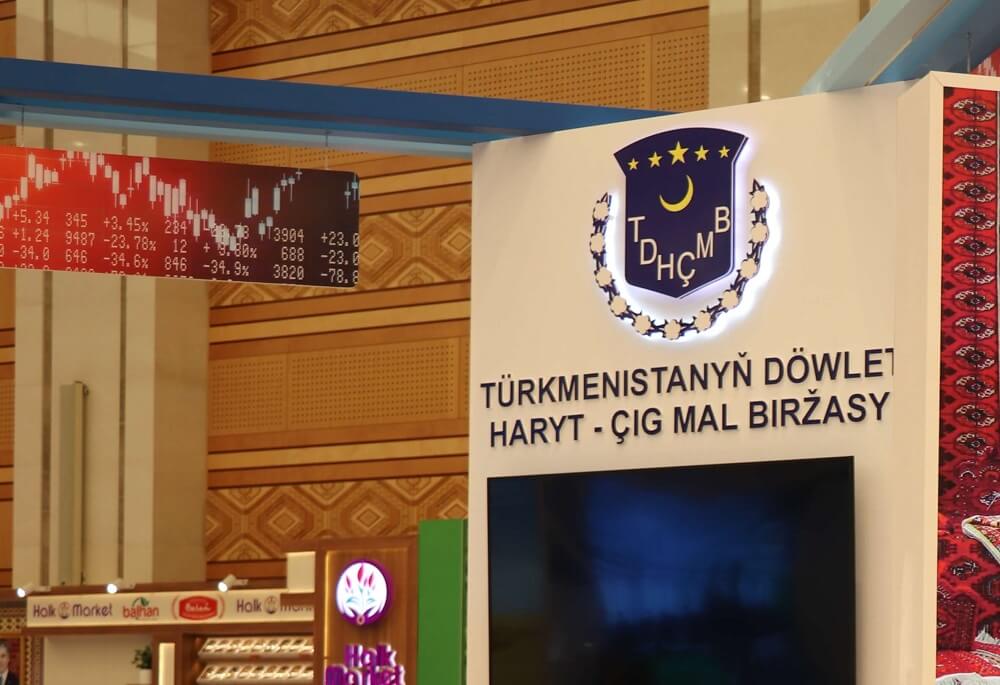BISHKEK (TCA) — Political partnership between Kyrgyzstan and Turkey has been strengthening for many years and has reached a high level. It is time now to give a new impetus to the development of economic cooperation between the two countries, Kyrgyz President Sooronbai Jeenbekov said at the Kyrgyz-Turkish investment forum held in Bishkek on September 2.
Turkish President Recep Tayyip Erdogan, who was in Kyrgyzstan on a two-day official visit, attended the forum.
Trusting relationship
Leading companies from Turkey and Kyrgyzstan from various economy sectors, representatives of state bodies and international organizations took part in the forum.
The participation of the Turkish President in the forum’s work raises mutual trust between businesspeople of the two countries, President Jeenbekov said.
“We have a particularly trusting relationship with Turkey. For partners from fraternal Turkey, our doors are always open, we are happy with every meeting with you. During my official visit to Turkey last April, we reached important agreements in trade, transportation, agriculture, energy, health, and pensions,” Jeenbekov said.
In 1994, trade between Kyrgyzstan and Turkey was $20 million. Over the past 23 years, this indicator grew 18-fold and last year amounted to $356 million.
“At the same time, I believe that our trade is not fully used. We need to make every effort to increase the trade between our countries up to $1 billion,” Jeenbekov said.
Over 27 years of Kyrgyzstan’s independence, hundreds of projects have been implemented in Kyrgyzstan with the participation of Turkish capital. Currently, over 600 joint Kyrgyz-Turkish enterprises operate in Kyrgyzstan. Since 1995, direct investments from Turkey to Kyrgyzstan exceeded $500 million.
Creating conditions for doing business
Kyrgyzstan has created the most favorable conditions for doing business, Jeenbekov said. As a result of fiscal reforms, the most liberal tax regime in the region was created. In Kyrgyzstan, tax rates are much lower than in some countries of the region. For instance, VAT is 12% and the income tax is 10%. Agricultural producers, trade and logistics centers and machine and tractor stations are completely exempt from the profit tax.
From September 2018, VAT is only 2.4% for enterprises processing domestic agricultural produce. To develop the country’s regions, preferential taxation of the industry was introduced. In the settlements of regions defined by the Government, enterprises are completely exempt from the tax on real estate and land from five to ten years.
Kyrgyzstan gives priority to the processing of agricultural products, energy, light and processing industries, and tourism.
The country will continue reforms to liberalize investment laws and restrict interference in business activities, as well as to respect contractual rights, President Jeenbekov said.
He told the forum participants about the stable regime tax option. New enterprises are exempted from inspections for three years. There is a free currency regime in the country. There are no restrictions on buying and selling foreign currency, withdrawal and input of capital. The import of technological equipment is exempt from customs duties.
Foreign investors can use inexpensive and skilled labor and cheap electricity.
Kyrgyzstan has the lowest tariffs for electricity — 3.17 cents for legal entities and 1.44 cents for private traders. Citizens of 58 countries, including Turkey, enjoy a visa-free regime for up to 60 days.
Kyrgyzstan’s geographic location at the junction of the main trade routes is important for businesses. Almost half of the world’s population lives in a three-hour flight from Bishkek. Kyrgyzstan has launched a number of major projects to improve its transport infrastructure, President Jeenbekov said.
As a member of the Eurasian Economic Union with a 183 million population, Kyrgyzstan enjoys preferences, including free circulation of its goods and services in Russia, Kazakhstan, Belarus and Armenia. Goods produced in Kyrgyzstan have big advantages over goods produced in third countries.
Within the EEU, there is an opportunity to create a special economic zone in Kyrgyzstan’s Naryn province.
“Taking into account the experience of Turkey, we believe that it is possible to open free economic zones with the participation of Turkish business,” the Kyrgyz President said.
It is necessary to use all available means to stimulate trade, such as the priorities of the Generalized System of Preferences (GSP+) which gives Kyrgyz producers the opportunity to export over 6 thousand commodity items under zero tariffs to the EU.
Kyrgyzstan is ready to increase exports of organic agricultural products to Turkey.
“I am convinced that these products will find customers in Turkey’s expanding large market,” Jeenbekov said.
He urged Turkish businesses to invest in Kyrgyzstan.
“Kyrgyzstan will create all conditions for your business to be successful. For us, the priority is not only to attract Turkish capital, but also technologies of advanced Turkish companies,” President Jeenbekov added.
Investing in Kyrgyzstan
President Erdogan urged Turkish businesspeople to invest in Kyrgyzstan and cooperate more actively with their Kyrgyz counterparts. Investment in the Kyrgyz market would also appeal to Russia, Kazakhstan and Belarus, the EEU member countries, he added.
President Erdogan focused the attention of Turkish businesspeople on improving the transport and aviation infrastructure, as well as on tourism, education and health.
“I hope that trade between our countries will grow to a billion dollars a year in the future,” Erdogan said, asking Kyrgyzstan to give support to Turkish businesspeople.
Turkey has a great experience in tourism. In 2018, 40 million tourists visited Turkey.
“We can help Kyrgyzstan develop the tourism industry,” Erdogan said.
He also called on the Turkish businesses to pay attention to Kyrgyzstan’s textile industry.
“We will also work with the Manas airport [in Bishkek],” he added.
The Turkish President also spoke about the impact of the US dollar on the Turkish economy. Turkey is intensifying trade and economic cooperation with China and Russia using its own currency, he said, and suggested considering the same opportunities in cooperation with Kyrgyzstan.
On September 1, the fourth meeting of the Supreme Council for Strategic Cooperation between Kyrgyzstan and Turkey was successfully held, which has not been held since 2014. During the meeting, bilateral documents were signed in economy, agriculture, emergency situations, education, science, and social insurance. The Kyrgyz-Turkish Intergovernmental Commission will resume its activity.
An agreement was reached to hold the next edition of the World Nomad Games — a brainchild of Kyrgyzstan — in Turkey in 2020.
On September 2, President Erdogan attended the opening ceremony of this year’s Games at Lake Issyk-Kul.









